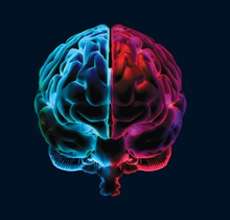Research reveals that fake laughter doesn't fool the brain

As the world celebrates International Day of Happiness today (Thursday, 20 March), can we tell whether people are truly happy just from their laugh?
A researcher from Royal Holloway, University of London, has found that there are clear differences between how our brains respond to genuine and fake laughter.
A study led by Dr Carolyn McGettigan, from the Department of Psychology, recorded the brain responses of participants as they listened to the same people produce genuine laughter, caused by watching funny YouTube videos, and forced laughter. The participants, who were unaware the study was about laughter perception, demonstrated different neurological responses when they heard false laughter. This suggested that our brains not only distinguish between the two types of laughter, but attempt to work out why the fake laughter is not genuine.
"As we celebrate International Day of Happiness today, it's fascinating to consider the way our brain is able to detect genuine happiness in other people", said Dr McGettigan. "Our brains are very sensitive to the social and emotional significance of laughter.
"During our study, when participants heard a laugh that was posed, they activated regions of the brain associated with mentalizing in an attempt to understand the other person's emotional and mental state.
"Indeed, some of the participants engaged parts of the brain that control movements and detect sensation. These individuals were more accurate at telling which of the laughs were posed, and which were real. This suggests that as listeners, 'trying out' how a laugh would feel if we produced it ourselves might be a useful mechanism for understanding its meaning."
The International Day of Happiness was first observed by the UN General Assembly on 20 March 2013 and acknowledges the importance of happiness in the lives of people around the world.
More information: "Individual Differences in Laughter Perception Reveal Roles for Mentalizing and Sensorimotor Systems in the Evaluation of Emotional Authenticity." C. McGettigan, E. Walsh, R. Jessop, Z. K. Agnew, D. A. Sauter, J. E. Warren and S. K. Scott. Cerebral Cortex Advance Access published August 22, 2013. www.ncbi.nlm.nih.gov/pubmed/23968840

















